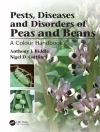Under ongoing climate change, natural and cultivated habitats of major food crops are being continuously disturbed. Such condition accelerates to impose stress effects like abiotic and biotic stressors. Drought, salinity, flood, cold, heat, heavy metals, metalloids, oxidants, irradiation etc. are important abiotic stresses; and diseases and infections caused by plant pathogens viz. fungal agents, bacteria and viruses are major biotic stresses. As a result, these harsh environments affect crop productivity and its biology in multiple complex paradigms. As stresses become the limiting factors for agricultural productivity and exert detrimental role on growth and yield of the crops, scientists and researchers are challenged to maintain global food security for a rising world population.
This two-volume work highlights the fast-moving agricultural research on crop improvement through the stress mitigation strategies, with specific focuses on crop biology and their response to climatic instabilities. Together with ‘Climate Resilient Agriculture, Vol 1: Crop Responses and Agroecological Perspectives’, it covers a wide range of topics under environmental challenges, agronomy and agriculture processes, and biotechnological approaches, uniquely suitable for scientists, researchers and students working in the fields of agriculture, plant science, environmental biology and biotechnology.
Содержание
1. Climate Change and Global Crop Production: An Inclusive Insight.- 2. Uptake and Use Efficiency of Major Plant Nutrients for Climate Resilient Agriculture.- 3. Improving Land Use Efficiency for Climate Resilient Agriculture.- 4. Climate Resilient Fertilizer Management for Crop Production.- 5. Modern Agronomic Measurement for Climate Resilient Agriculture.- 6. Crop Management for Sustainable Wheat Production.- 7. Climate Resilient Weed Management for Crop Production.- 8. Climate Resilient Technology for Maize Production.- 9. Climate Resilience Technologies for Wheat production.- 10. Improving Plant Nutrient Use Efficiency for Climate Resilient Agriculture.- 11. Biochar for Plant Stress Tolerance for Climate Resilient Agriculture.- 12. Chitosan for Plant Growth and Stress Tolerance.- 13. Exogenous Application of Biostimulants and Commercial Utilization.- 14. Crosstalk of Biostimulants with Other Signaling Moleculesunder Abiotic Stress.- 15. Abiotic Stress Sensitivity and Adaptation in Field Crops, — 16. Biostimulants for Plant Abiotic Stress Resistance and Climate-Resilient Agriculture.- 17. Approaches in Enhancing Salt Tolerance in Plants.- 18. Mechanism and Approaches to Enhance Salt Stress Tolerance in Crop Plants.- 19. Mechanisms and Approaches of Enhancing Drought Stress Tolerance in Crops Plants.- 20. Conferring Plant Tolerance to Drought and Salinity by the Application of Biochar.- 21. Accumulation and Toxicity of Arsenic in Rice and its Practical Mitigation.- 22. Mechanism and Approaches to Enhancing Heat Stress Tolerance in Crop Plants.- 23. Mechanisms and Responses to Enhancing Pollutants Stress Tolerance in Crop Plants.- 24. Phytohormones as Stress Mitigator in Plants.- 25. Role of Plant Extracts and Biostimulant in Mitigating of Plant Drought and Salinity Stress.- 26. Secondary Metabolism and its Role in Enhancing Drought Stress Tolerance.- 27. Seed Priming for Abiotic Stress Tolerance.- 28. Advances in Biotechnological Tools and their Impact on Global Climate Change and Food Security.- 29. Biotechnological Attributes of Bio-stimulants for Relieving Abiotic Stress.- 30. Biotechnological Techniques for Sustainable Waste Management.- 31. Role of Biotechnology in Management of Solid Waste.- 32. Bioremediation of Sites Contaminated with Heavy Metals, Techniques and their Application.- 33. Micro RNAs (mi RNAs): Crosstalk with Regulatory Networks of Abiotic Stress Tolerance in Plants.- 34. Orchestration of Omics Technologies for Crop Improvement.- 35. Transgenic Approaches for Stress Tolerance in Crops.- 36. Translationally Controlled Tumor Protein and its Relationship with Responses of Plants to Abiotic Stresses.- 37. Plant Tissue Culture and Crop Improvement.- 38. Nanotechnology for Climate-Resilient Agriculture.- 39. Mitigation of Plant Abiotic Stress by Plant Growth Promoting Bacteria, Hormones and Plant Extracts.- 40. Bioremdiation and Phytoremediation Aspects of Crop Improvement.- 41. Ecofriendly Management of Insect Pests for Sustainable Agriculture.- 42. Ecofriendly Management of Disease for Sustainable Agriculture.- 43. Use of Advance Composting Techniques and Areas of Improvement in Pakistan.
Об авторе
Dr. Mirza Hasanuzzaman is a Professor of Agronomy at Sher-e-Bangla Agricultural University, Dhaka, Bangladesh. He completed his Bachelor of Science in Agriculture (Hons.) from Sher-e-Bangla Agricultural University, where he achieved First Class, received a Gold Medal for being first in his class, and earned a Sher-e-Bangla Agricultural University Award. He also completed a Master of Science in Agronomy from the same university, where he was once again at top of his class with a CGPA 4.0. In 2012, he received his Ph.D. with a dissertation on ‘Plant Stress Physiology and Antioxidant Metabolism’ from the United Graduate School of Agricultural Sciences, Ehime University, Japan with a Japanese Government (MEXT) Scholarship. Later, he completed his postdoctoral research in the Center of Molecular Biosciences (COMB), University of the Ryukyus, Okinawa, Japan with a ‘Japan Society for the Promotion of Science (JSPS)’ postdoctoral fellowship. Subsequently, he became an Adjunct Senior Researcher at the University of Tasmania with an Australian Government’s Endeavour Research Fellowship. Dr. Mirza Hasanuzzaman is one of the Highly Cited Researchers recognized by Clarivate Analytics and the only Bangladeshi researcher with this recognition. Prof. Hasanuzzaman published over 250 articles in the high-profile international peer-reviewed journals. He edited 33 books and written 45 book chapters on important aspects of plant physiology, plant stress tolerance, and crop production. These books have been published by world-renowned publishers such as Springer, Elsevier, CRC Press, and Wiley. According to Scopus, Prof. Hasanuzzaman’s publications have already received over 17000 citations with an h-index of 68. Prof. Hasanuzzaman’s current research foci include the crop responses to climate change and physiological and molecular mechanisms of environmental stress tolerance. He completed several research projects funded by the World Bank, FAO, the University Grants Commission of Bangladesh, the Ministry of Science and Technology (Bangladesh), and others. Prof. Hasanuzzaman supervised the dissertations of 41 Masters and 3 Ph.D. students. Dr. Hasanuzzaman is an editor and reviewer of more than 100 international journals and was a recipient of the ‘Publons Global Peer Review Award 2017, 2018 and 2019’ which is managed by Web of Science. He has presented 45 papers, abstracts, and posters at international conferences in many countries. Prof. Hasanuzzaman is a member of 50 professional societies and is the acting Treasurer Secretary of the Bangladesh JSPS Alumni Association and Publication Secretary of Bangladesh Society of Agronomy (BSA) and Weed Science Society of Bangladesh. He is a Fellow of Bangladesh Academy of Sciences, The Linnean Society of London, Royal Society of Biology, and International Society of Environmental Botanists. He received the World Academy of Science (TWAS) Young Scientist Award 2014, University Grants Commission (UGC) Gold Medal 2018, Global Network of Bangladeshi Biotechnologists (GNOBB) Award 2021 and Society for Plant Research Young Scientist Award (Agriculture)-2023.












